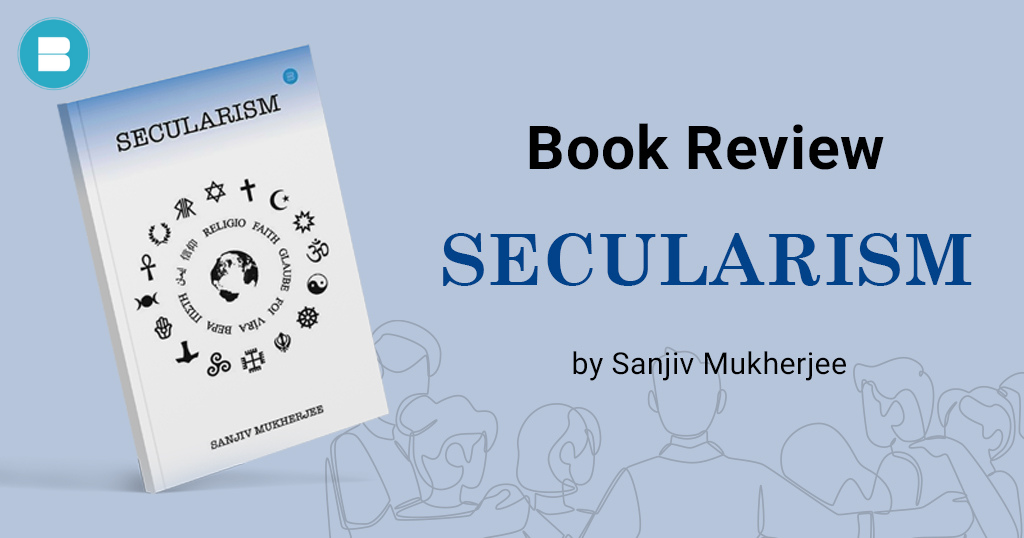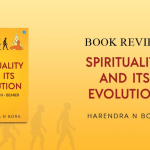Book – Secularism
Author – Sanjib Mukherjee
Blurb – Often in the 21st century, especially in a diverse democracy like one that comprises people from various faiths and social customs who live in congregation, a question is often debated: should India be a ‘Secular’ democracy? Or was the word “becularism’ included as the 42nd Amendment in our Constitution in 1976 for divisive and appeasement politics?
In my book ‘Secularism’, I’ve tried to bring out the effects of the induction of the term secularism in our Preamble of the Constitution and the rational conclusion whether the term secularism is rationally viable and conducive, especially in the context of an overpopulated and diverse nation like India.
Review – In Sanjib Mukherjee’s thought-provoking book “Secularism,” the author undertakes a comprehensive examination of a topic that is not only relevant but also deeply divisive in today’s India. The book delves into the concept of secularism in the Indian context, considering the nation’s vast diversity and complex socio-political landscape.
Mukherjee opens the book by setting the stage with a crucial question: Should India be a ‘Secular’ democracy? This question has been at the forefront of many debates and discussions in recent times. To frame this discourse, the author recalls the historical context when the term “secularism” was included in the Indian Constitution as part of the 42nd Amendment in 1976. This addition was not without controversy and has since sparked debates about its significance and implications.
Read: Here’s a List of Easy Ways on How to Promote your Book on Goodreads.
One of the book’s most commendable aspects is its clarity and structured approach. Mukherjee meticulously dissects the concept of secularism, beginning with its historical evolution, its introduction into the Indian Constitution, and its practical implications in a country as diverse as India. By taking this methodical approach, the author allows readers to follow the progression of the discussion and understand the nuances involved.
Mukherjee is not content with merely recounting the historical aspects of secularism in India. Instead, he engages with the topic on a deeper level, addressing its rational viability and conduciveness in the context of India’s unique challenges. The author emphasises the importance of analysing secularism not in isolation but as a concept intertwined with the complex fabric of Indian society, where diverse religious and cultural identities coexist.
Throughout the book, Mukherjee offers a balanced perspective, acknowledging the various arguments and viewpoints that have emerged regarding secularism. He provides historical context, drawing on India’s colonial past and the struggle for independence to shed light on the origins of the concept of secularism within the country’s constitution.
One of the book’s strengths is its ability to contextualise secularism within the broader framework of Indian democracy. Mukherjee explores how secularism intersects with other fundamental principles of democracy, such as equality, justice, and individual rights. This approach allows readers to grasp the multifaceted nature of secularism and its relevance in a democratic society.
Mukherjee’s writing style is clear, concise, and accessible, making the book suitable for a wide range of readers. He avoids overly technical or jargon-laden language, ensuring that the book remains engaging and comprehensible to both scholars and the general public.
However, it’s essential to note that while Mukherjee provides a comprehensive overview of secularism in India, the book does not claim to offer definitive answers to the complex questions it raises. Instead, it encourages readers to think critically and engage in discussions about the future of secularism in the country.
In conclusion, Sanjib Mukherjee’s “Secularism” is a timely and thought-provoking exploration of a concept that lies at the heart of India’s democratic ethos. The author’s meticulous research, balanced approach, and clear writing style make this book an essential read for anyone interested in understanding the challenges and possibilities of secularism in a diverse and dynamic nation like India.
Read: How Much Should You Price Your Book? Tips for Pricing Your Book
Mukherjee’s work encourages readers to reflect on the concept of secularism and its role in shaping the country’s future, making it a valuable contribution to the discourse on Indian democracy and governance.
Publish your book with BlueRoseONE and become a bestselling author. Don’t let your dream of becoming an author fade away, grab the opportunity now and publish your book – be it fiction, non fiction, poetry or more.
















